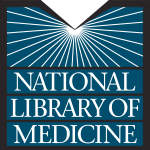- Industri: Library & information science
- Number of terms: 152252
- Number of blossaries: 0
- Company Profile:
The National Library of Medicine (NLM), on the campus of the National Institutes of Health in Bethesda, Maryland, is the world's largest medical library. The Library collects materials and provides information and research services in all areas of biomedicine and health care.
1) Failure of testes to descend into scrotum.
2) A developmental defect characterized by failure of the testes to descend into the scrotum.
Industry:Medical
1) Cytosine (C) is one of four chemical bases in DNA, the other three being adenine (A), guanine (G), and thymine (T). Within the DNA molecule, cytosine bases located on one strand form chemical bonds with guanine bases on the opposite strand. The sequence of four DNA bases encodes the cell's genetic instructions.
2) A pyrimidine base (C4H5N3O) that codes genetic information in the polynucleotide chain of DNA or RNA.
Industry:Medical
In cancer, refers to how mature (developed) the cancer cells are in a tumor. Differentiated tumor cells resemble normal cells and tend to grow and spread at a slower rate than undifferentiated or poorly differentiated tumor cells, which lack the structure and function of normal cells and grow uncontrollably.
Industry:Medical
1) Extensions of the nerve cell body. They are short and branched and receive stimuli from other neurons.
2) A branching protoplasmic process of a neuron that receive and integrate signals coming from axons of other neurons, and convey the resulting signal to the body of the cell.
Industry:Medical
Hemeproteins whose characteristic mode of action involves transfer of reducing equivalents which are associated with a reversible change in oxidation state of the prosthetic group. Formally, this redox change involves a single-electron, reversible equilibrium between the Fe(II) and Fe(III) states of the central iron atom (From Enzyme Nomenclature, 1992, p539). The various cytochrome subclasses are organized by the type of heme and by the wavelength range of their reduced alpha-absorption bands.
Industry:Medical
The use of mutation analysis, mutation scanning, sequence analysis, or other means of molecular genetic testing to detect a genetic alteration associated with a specific disorder; direct DNA analysis is possible only when the gene (or genes) or genomic region associated with a disorder is known.
Industry:Medical
1) A visual symptom in which a single object is perceived by the visual cortex as two objects rather than one.
2) The condition in which a single object appears as two objects.
Industry:Medical
Areas of increased density of the dinucleotide sequence cytosine--phosphate diester--guanine. They form stretches of DNA several hundred to several thousand base pairs long. In humans there are about 45,000 CpG islands, mostly found at the 5' ends of genes. They are unmethylated except for those on the inactive X chromosome and some associated with imprinted genes.
Industry:Medical
A suture extending across the skull between the parietal and frontal bones--called also frontoparietal suture.
Industry:Medical
1) Perception of three-dimensionality.
2) Proper visual recognition of depth or the relative distances to different objects in space.
3) The ability to judge the distance of objects and the spatial relationship of objects at different distances.
Industry:Medical
